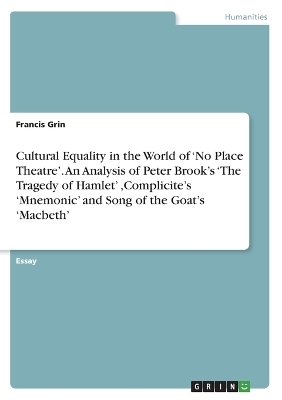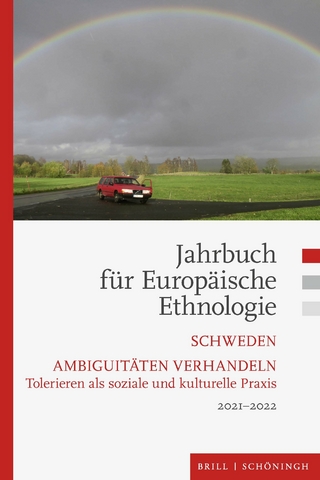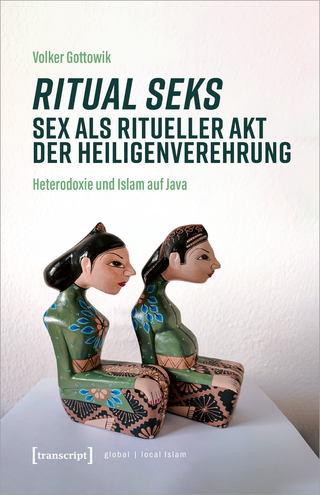
Cultural Equality in the World of 'No Place Theatre'. An Analysis of Peter Brook's 'The Tragedy of Hamlet' ,Complicite's 'Mnemonic' and Song of the Goat's 'Macbeth'
Seiten
2021
GRIN Verlag
978-3-346-44203-1 (ISBN)
GRIN Verlag
978-3-346-44203-1 (ISBN)
- Titel nicht im Sortiment
- Artikel merken
Essay from the year 2011 in the subject Cultural Studies - European Studies, grade: A, University of London, course: MA WRITING FOR PERFORMANCE, language: English, abstract: Through a discussion of Peter Brook's The Tragedy of Hamlet (2000), Complicite's Mnemonic (1999), and Song of the Goat's Macbeth (2010), we see clear examples of how these productions are using 'no-place' theatre as a site for embracing cultural equality (rather than cultural ambiguity) on stage as these productions all search for the universal values which bond different cultures together. The expansion of the global market has inevitably had an incredible impact on the shaping of contemporary theatre. This can especially be felt through the rising popularity of 'no-place' theatre, which often strips back cultural specificity and replaces it with spectacle. Dan Rebellato refers to this theatre as "McTheatre", a genre under which he includes big brand productions such as The Blue Man Group, Cats and The Phantom of the Opera. These productions often embrace cultural ambiguity in a way which allows them to both move anywhere and (even more importantly) sell anywhere. Their 'no-place' quality allows for their 'every-place' relevance, as they and sometimes even profit more from their merchandise than their actual shows Hence, the values of these productions are very much the values of the global market, to sell as broadly and quickly as possible.While such a discussion may give the label of 'no-place' theatre a negative association, globalization has also led to another strand of theatre, one which becomes a response to (rather than the result of) globalization. This is the theatre produced by artists such as Peter Brook, Complicite theatre, and Song of the Goat theatre, companies who go against the grain of the global market by using 'no-place' theatre as a site for returning to cosmopolitan and Universalist values, rather than the global market values. Unlike globalized commercial theatre, the 'no-place' quality produced by these artists is in no way the result of cultural ambiguity; instead, these companies chose to represent a variety of different cultures on stage, linking these productions to a place that is both here and there. But above all, by striving to represent different cultures on stage, these companies return to a sense of cultural equality, one which embraces Universalist values, which Zygmunt Bauman notes.
| Erscheinungsdatum | 03.09.2021 |
|---|---|
| Sprache | englisch |
| Maße | 148 x 210 mm |
| Gewicht | 45 g |
| Themenwelt | Sozialwissenschaften ► Ethnologie ► Völkerkunde (Naturvölker) |
| Schlagworte | Analysis • Brook's • complicite's • Cultural • equalitiy • Ethnic Studies • goat's • hamlet' • Peter • Place • Song • theatre' • Tragedy • World |
| ISBN-10 | 3-346-44203-9 / 3346442039 |
| ISBN-13 | 978-3-346-44203-1 / 9783346442031 |
| Zustand | Neuware |
| Haben Sie eine Frage zum Produkt? |
Mehr entdecken
aus dem Bereich
aus dem Bereich
Schweden : Ambiguitäten verhandeln - Tolerieren als soziale und …
Buch | Softcover (2023)
Brill Schöningh (Verlag)
49,90 €
Buch | Softcover (2023)
transcript (Verlag)
54,00 €


